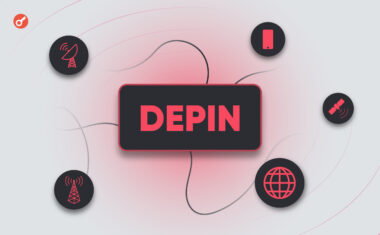.post-accordion-wrapper .accordion-content {
max-height: 0;
overflow: hidden;
}
While tech giants are competing through massive investments in artificial intelligence (AI) infrastructure, Web3 companies are developing an alternative, decentralized model.
According to Dell’Oro Group, Big Tech players — Amazon, Google, Meta, and Microsoft — invested around $180 billion in AI infrastructure and data centers in 2024, and in 2025 their spending is expected to reach $320 billion.
“It’s always harder to go against the Goliath, but we’re like little Davids here,” says Clara Tsao, co-founder of the Filecoin Foundation.
The Incrypted team spoke with her, as well as with Aethir CEO Dan Wang and Messari Protocol Partnerships Lead Brandon Slaght at Agents Day during EthCC, about how Web3 companies are building the future of AI and what challenges they face along the way..
The Infrastructure Reality: Complexity and Cost
Building AI systems is far more expensive and complex than it seems, Tsao noted. According to her, today’s systems require multiple components: a data layer, compute, GPUs, and AI agents.
“One of the things we’ve noticed is probably one of the biggest pain points in not just decentralized AI, but the AI services sector overall: go-to-market, time-to-market, and being able to scale. I think people underestimate how expensive it is to run AI services at scale,” adds Wang of Aethir.
As soon as a project starts to scale, initial costs skyrocket, he says. That’s why most AI agents never reach the mass market — they simply don’t have the right monetization model, the Aethir CEO pointed out.
As already mentioned, Big Tech companies are prepared to spend hundreds of billions of dollars on AI infrastructure. Moreover, they have other advantages over players in the Web3 segment.
“There are so many challenges, not just for us, but in Web3 in general, because we are going up against traditional monopolies. Our biggest competitor is obviously traditional cloud storage, which has a huge advantage in time horizon and also user base,” emphasized Clara Tsao.
It is worth noting that the decentralized physical infrastructure networks (DePIN) sector, where Filecoin is one of the pioneers, has already reached a market cap of more than $40 billion, according to Messari. According to analysts at the World Economic Forum, this figure could rise to $3.5 trillion by 2028.
Trust, but verify
In addition to cost, a critically important factor in working with AI and data is their accuracy and quality.
“The number one problem in all things in life, but specifically in data and AI — because everything is moving so fast and it’s searching through so much volume of information — is just GIGO: garbage in, garbage out,” says Brandon Slack of Messari.
This is where the advantage of a decentralized approach can come into play. In traditional cloud systems, users often do not have access to a verified source of information or cannot verify the authenticity and immutability of data.
This becomes critically important in the era of deepfakes and fabricated information. Today, when there is too much data on the internet, people often take everything at face value — and that is why verification becomes a necessity.
The ability to prove the origin of data is a fundamental advantage of Web3: blockchain allows not only to store information, but also to ensure its authenticity.
“We’re building a lot of abilities to integrate and store agent-to-agent data today that you can imagine AWS or centralized storage facilities may or may not already be thinking about… Being able to prove the source of data is how you can actually solve that. When you store data on the Filecoin network, you can actually prove and validate exactly where the source came from,” — says Clara Tsao.
The Strategy of Specialization
Another advantage of decentralization is the focus on narrow specialization, whereas large technology companies try to solve “everything for everyone.” Slack draws an analogy with medicine — generalized AI works like therapists, but there are also narrow-profile specialists. In his opinion, AI development will follow this path:
“There will be general LLMs, and for retail or simple questions, it’s excellent. ChatGPT is something I use every day. But if you’re trying to get really specific source of truth on crypto and really cut through the noise, I think something like Messari Copilot really allows you to get there quite quickly’.
Innovations at the intersection of Web3 and AI
New technologies are particularly active in the world of finance.
AI agents on the blockchain have already reached impressive scales. According to VanEck estimates, the potential of this segment will lead to the emergence of more than a million new agents by 2025.
“We’re seeing the most amount of growth in AI agents in the Web3 space, where so many people are using them today to trade, especially in the DeFi space,” says Clara Tsao.
Data storage remains a key aspect of this process. Tsao explains:
“We’re really excited about what archival and large-scale data storage means for the f uture of what people are building today in AI. Most AI agents, whether they’re coming from centralized or decentralized systems, depend on the amount of data that they’re trained on for accuracy. Storage is never going to go away.”
Can Web3 projects change the market?
The AI revolution is just beginning. Web3 companies are betting on decentralization and specialization, contrasting this with centralized monopolies. In addition, blockchain provides transparency of data origin.
History shows that in the battle between Davids and Goliaths, it is often the fast and focused newcomers who win, finding moves that the big players don’t even think of.

